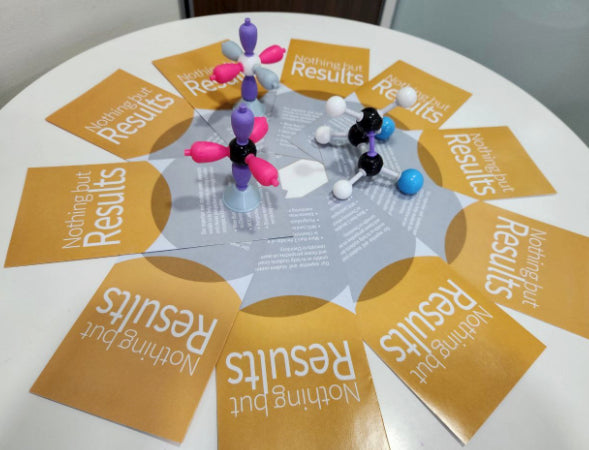How will the changes in subject banding affect me?
The Ministry of Education in Singapore has recently released an update announcing a change in the allocation of subject combinations for secondary students, which is to take place in 2024. There will soon be major changes to the Singaporean education system for secondary students, one of which is the introduction to the subject banding system.
As Focus Chemistry keeps up with the latest changes and trends in education, it is important to note how this will affect future secondary school students who plan to study Chemistry. Students in secondary school may want to study Chemistry for a variety of reasons, including but not limited to their job prospects in future, their choice of university course, and their aptitude in the subject. The new subject-based banding system will allow students who are inclined towards the subject and willing to explore more to take Chemistry.


What is the Subject-Banding Based System?
The subject-banding based system (SBB) will replace specific academic tracks based on students’ performance in important subjects. Currently, the specific academic tracks include the N(T), N(A), and Express tracks, which culminate in either the O or N Level examinations.
The new system will allow students to undertake different subject combinations based on their interests and strengths, regardless of overall academic performance. The proposed changes are set to take place in 2024. These changes come in tandem with the abolishment of the O and N Level exams and the implementation of the common examination to signify the end of a student’s secondary education, which will take place in 2027.
Instead of the specific academic tracks, the new subject-banding based system will feature 3 levels of each subject. The levels will be named G1, G2, and G3, with the G3 level being the most difficult. Following their PSLE exams, students will be placed into their subject bands based on their academic results. These subject bands can change over their secondary school life, based on the student’s academic performance and interests.
At the end of their secondary education, all students will receive a common certificate stating their subject levels and marks prior to entering Junior College or polytechnic. These subject-banding changes will not affect the IP programme.
What does this mean for students under the Subject-Banding Based system?
With the SBB system, students can choose to study for their stronger subjects at a higher level. For example, if a Chemistry student is good at the subject, they can opt to study it at a greater difficulty, which puts them in good standing for Junior College, should they choose to study Chemistry for A Levels, or go into a Chemistry-related course in polytechnic.
At Focus Chemistry, students wishing to pursue Chemistry at a higher level will be able to develop strong exam techniques with our specially curated materials and question bank. We pride ourselves on crafting rare exam questions which mimic the difficult questions seen in exams from different secondary schools so that students can score the maximum number of marks after practicing with these rare questions and honing their skills.
However, if students wish to get into Chemistry in Junior College or polytechnic, they will need to undertake Chemistry at the G1, G2, or G3 level. Students who are passionate about Chemistry can choose to take it at the G1 or G2 level if they want to explore more about the subject and attain a basic foundation in secondary school.

Focus Chemistry is capable of helping any student at any level of understanding. To prepare for the change to the subject-banding based system, students will need to develop a solid foundation in Chemistry, regardless of whether they are at the G1, G2, or G3 level. As such, students should develop a solid foundation and receive guidance as to how they can answer exam questions in a clear and concise manner.
Although the future of secondary education may be uncertain, as parents and students alike will not be able to find out how the bands are allocated and the extent of difficulty of the G1, G2, and G3 levels, it is important to be prepared for whatever may come. Students still need to develop the basic skills and score as well as possible so that their common certificate after secondary school will be able to get them into the pre-university institution of their choice.
The subject-banding system will be implemented in 2024, with more information being released after the system has been tried and tested. Despite the uncertainty the SBB system brings to how secondary education in Singapore will be conducted, Focus Chemistry can help you excel and achieve the Chemistry grades you want!
Book your slot with Focus Chemistry here today!
Frequently Asked Questions:
-
Does O Level Chemistry have a lot of Math?
There are calculations involved in O Level Chemistry which requires the student to have a good mathematical ability.
-
How to score A1 for O Level Chemistry?
Students must have a good conceptual understanding as well as good mathematical skills to perform calculations.
-
What is the hardest subject for O Levels?
Additional Mathematics has a reputation for being the hardest O Levels subject as it has an extensive syllabus. Biology is another contender for the hardest O Level subject as it involves a lot of memorisation and conceptual understanding.
-
Which subject is easiest in Chemistry?
Atomic structure and states of matter are two of the easiest topics in Chemistry.
-
Is prelim harder than O Level?
Most schools will make prelim more difficult than the actual O Level exams to motivate students to study and to prepare them for a more difficult O Level paper.

